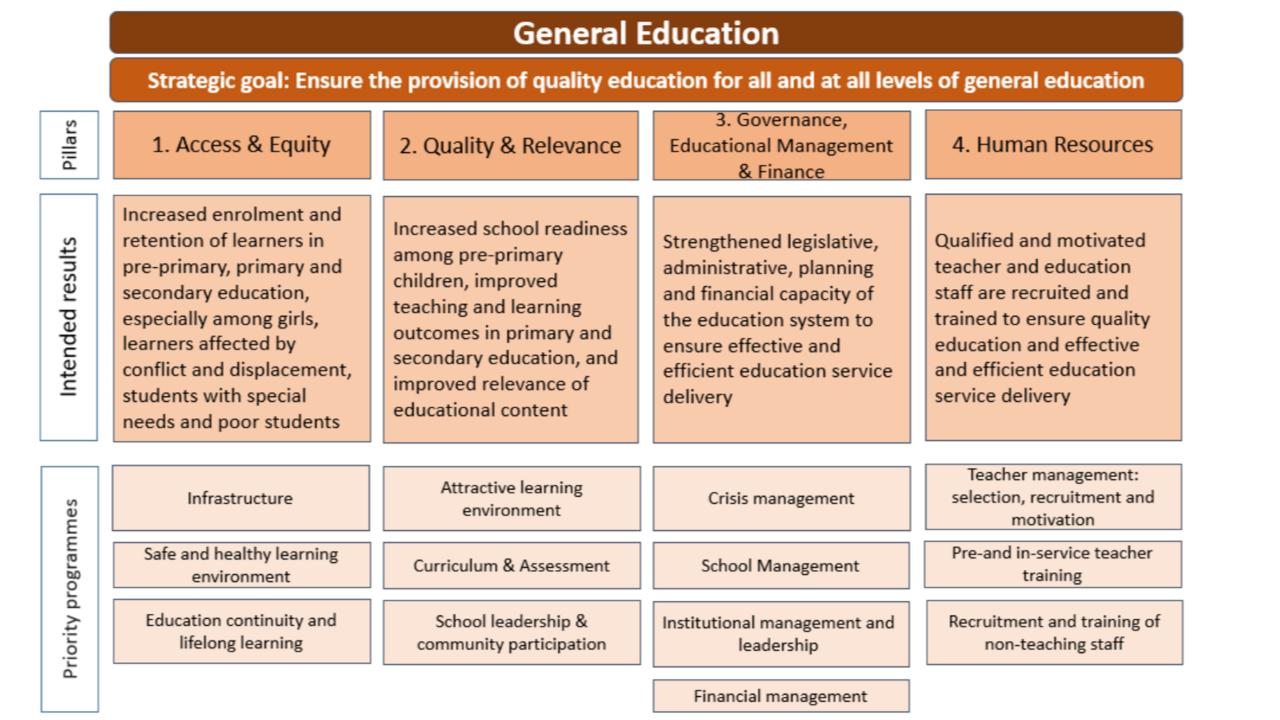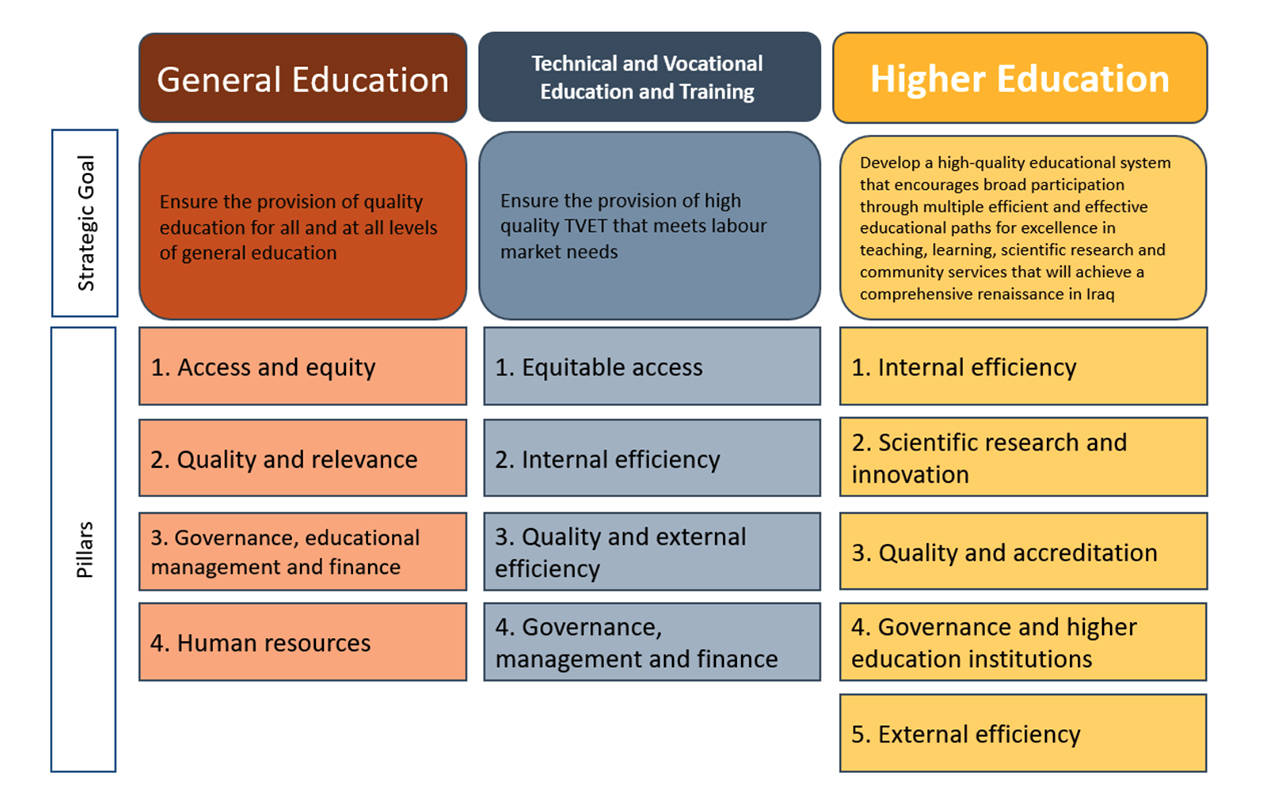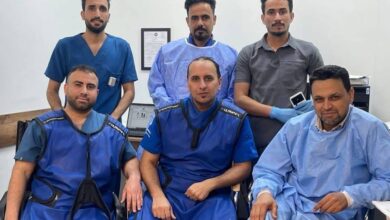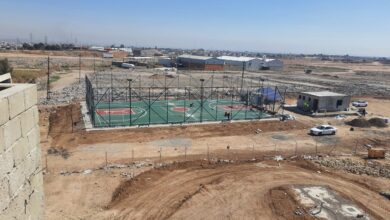The Iraq National Education Strategy (INES) 2022-2031 marks a significant step forward in the Iraqi government’s efforts to enhance the quality and efficiency of public services. Developed in collaboration with the World Bank, INES is designed to overhaul the country’s education system, aligning it with Iraq’s broader socio-economic development goals and international commitments.
The INES 2022-2031 aligns with Iraq’s National Development Plan (2018-2022), which seeks to establish a socially responsible development state. This ambitious strategy aspires to build an education system that is equitable, innovative, and inclusive, offering all Iraqi citizens the skills needed to thrive in the 21st-century knowledge economy. Iraq’s education laws, particularly the provision of compulsory and fee-free basic education, and its commitment to Sustainable Development Goal 4 (SDG 4), emphasise equitable access to quality education.
The vision behind INES is clear: to create an education system committed to promoting values, fostering innovation, and building a knowledge-based society in line with global standards. The strategy emphasises equipping young Iraqis with the necessary skills to contribute to Iraq’s sustainable economic and social development.
INES is structured around several key pillars, focusing on enhancing school management, crisis response, and partnerships with the private sector.

Under Pillar 2, the strategy emphasises improving the quality of education by introducing school-based management programmes, which include the provision of block grants to implement school improvement plans. In addition, a review of the school canteen system is proposed to increase schools’ operational budgets.
Crisis management is another critical focus. Drawing from the Ministry of Education’s (MoE) past experiences, the strategy aims to institutionalise crisis response mechanisms. This includes the creation of crisis cells within the MoE and its regional offices, ensuring a coordinated and timely response to emergencies.
A strong partnership with the private sector is also seen as essential for the future of education in Iraq. The INES 2022-2031 encourages private sector engagement to relieve pressure on the public education system, with the MoE planning to reform regulations and introduce legislation to facilitate private sector investment in education.
The INES outlines a series of financial projections to support its implementation. Iraq’s GDP is expected to grow at an average rate of 3.3% from 2026 to 2031, with the share of government expenditures on education increasing significantly. The strategy anticipates that public spending on education will rise from 11 trillion IQD in 2019 to 19 trillion IQD by 2031, representing 5.6% of GDP. Investment in education is expected to grow, with operational expenditures projected to rise from 12% to 17.5%, and investment expenditures increasing from 1% to 7%.
The World Bank highlights the need to expand investment allocations for education while improving the efficiency of budget disbursement and utilisation. These financial enhancements aim to build an education system that is not only more robust but also more responsive to the needs of a modern labour market.
The implementation of INES will be overseen by the Higher Committee of Monitoring and Evaluation (HCME), chaired by the Deputy Prime Minister. This committee includes key ministers from education, finance, planning, and other line ministries. The committee’s role is to monitor progress, ensure collaboration between ministries, and address challenges in the implementation process.
Two additional committees will be established within the Ministry of Education (MoE) and the Ministry of Higher Education and Scientific Research (MoHESR) to ensure the effective execution of INES. These committees, chaired by the Deputy Ministers of Technical Affairs, will oversee progress reports, coordinate with other ministries and international partners, and ensure alignment of activities.
The INES 2022-2031 represents a transformative vision for Iraq’s education sector, aiming to provide equitable access to quality education and foster a knowledge-based society. With support from the World Bank and a structured implementation plan, Iraq is poised to make significant strides in education reform, contributing to the nation’s sustainable development and future prosperity.
Source: World Bank
- Published: 2nd October, 2024
- Location: Baghdad
- Country: Iraq
- Editor: Yasmine Goumri
- Category: Education





